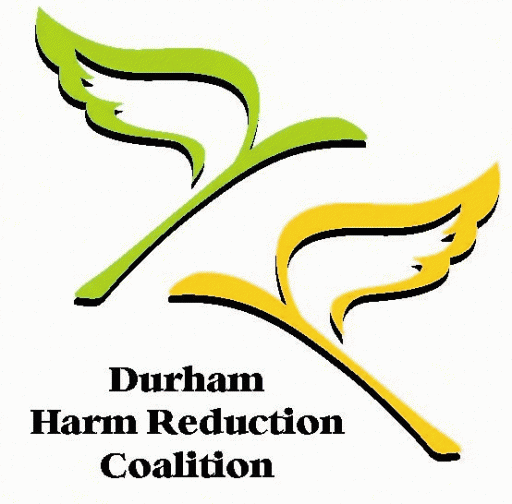Acting Locally – Caring Globally
Mission Statement
The Durham Harm Reduction Coalition (DHRC) is a regional advocacy and capacity-building organization that promotes the health and dignity of individuals and communities. The DHRC advances policies and programs that help address the risks and stigma associated with substance use, unsafe sex practices and mental health issues. Such risks include, but are not limited to, overdose, HIV, hepatitis C, addiction, and incarceration. We recognize that the structures of the social inequality impact the lives and options of the affected communities differently, and work to uphold every individual’s right to health and well-being, as well as in their ability to protect themselves, their loved ones, and their communities.
If you’d like some background on the need for Supervised Injection Sites, or to learn more, click here!
Our goal is to promote a healthier community.
Our Objectives are:
- To promote infection prevention and control
- To provide harm reduction education
- To advocate for availability, access and adequate services
- To encourage acceptance, understanding, and communication
- To reduce stigma and discrimination
- To protect both the individual and community at large
Definition of Harm Reduction
Harm reduction is an ideological and social intervention based on evidence that seeks to make risk transparent and reduce harm in the negotiation of choice.
Harm reduction emphasizes tolerance, respect for personal choices of others and respect for human rights. It favors evidence over prejudice. It means doing what has to be done to promote public health for all.
Basic Tenets of Harm Reduction
- Recognizes the intrinsic value and dignity of all human beings
- Seeks to maximize access to social and health assistance, disease prevention and education while minimizing repressive and punitive measures
- Emphasizes the necessity for a comprehensive approach to address the complexities of the individual and community in an effort to reduce harm
- Does not perceive substance use as good or bad, rather it looks at people’s relationship to , and emphasizes the reduction of substance related harm while encouraging safer substance use
- Recognizes the competency of users to make choices and changes in their lives
- Provides options in a non-judgmental, non-coercive way
- Demands that the individuals and communities affected by substance use be involved in the creation and implementation of harm reduction interventions
- Recognizes the diversity of users and substance use, and the necessity for outreach and services that reflect every user’s needs
- Expected accessible, non-judgmental drug treatment upon demand
- Supports legal syringe exchange and accessible sterile drug using and safer sex equipment
- Challenges current drug policy and its consequences, such as, misrepresentations of substance users and misinformation about substance use
